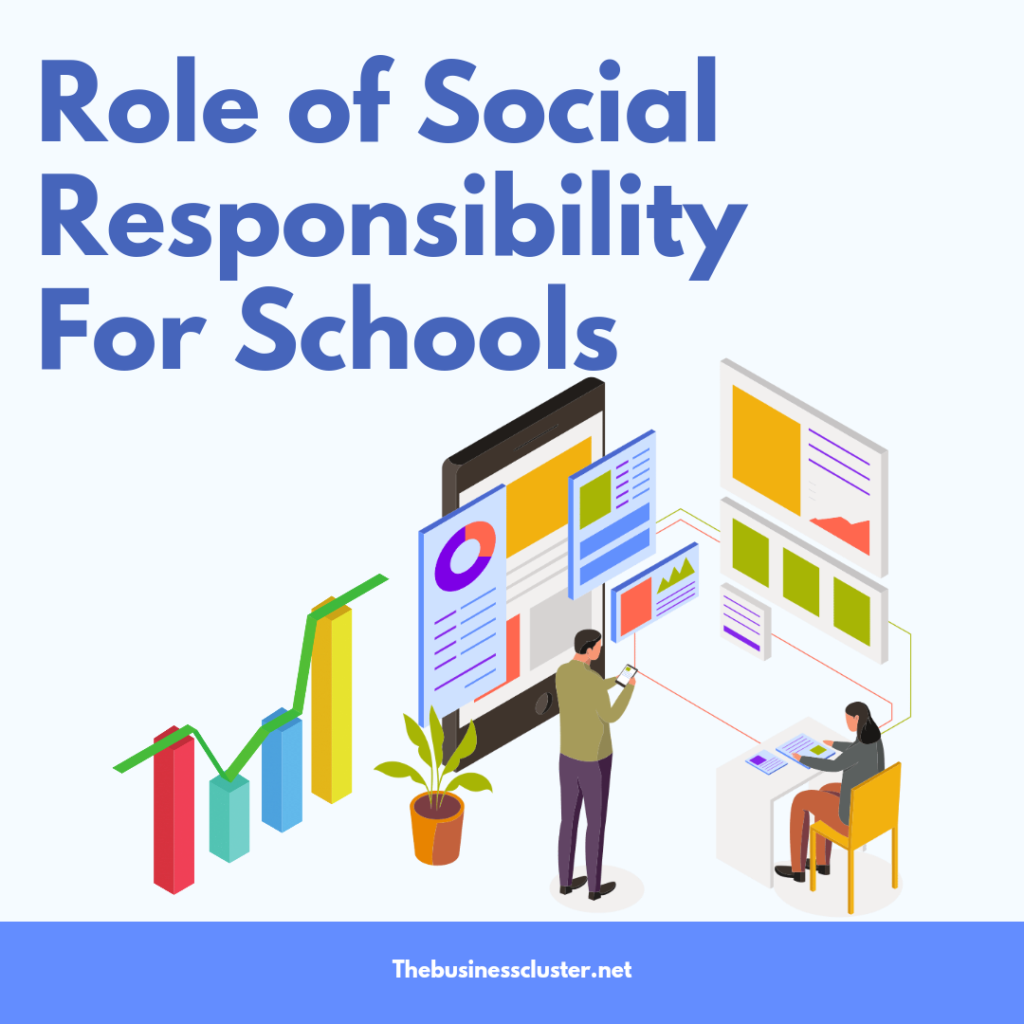

Role of Social Responsibility
In the busy world of education, where students learn and grow, there’s something really important: social responsibility. But what does that mean for schools, and why does it matter? Let’s find out why it’s so important for schools to embrace social responsibility.
Understanding Social Responsibility for Schools
Social responsibility for schools means they do lots of things to help society, the environment, and the people around them. Schools work to include everyone and protect the environment. They’re super important because they help make good citizens and teach people to give back to others. Let’s see how schools do this in more detail.

Moreover, Read this blog also: How to Boost School’s SEO Strategy?
Firstly, schools make sure everyone feels welcome and included. They don’t leave anyone out and treat everyone equally. This is called promoting inclusivity. By doing this, schools create a friendly environment where everyone feels valued.
Secondly, schools care about the environment. They teach students how to take care of the planet by recycling, saving energy, and planting trees. This is called championing environmental sustainability. Schools want to make sure the Earth stays healthy for future generations.
Overall, schools play a crucial role in shaping responsible citizens. They teach students to care about others and the world around them. This creates a culture of giving back, where people help each other out and make the world a better place.
Importance of Social Responsibility
Nurturing Empathy and Compassion:
Schools teach students to understand and care about others. They help students see how others feel and why it’s important to be kind. For example, when someone is sad, they learn to comfort them. This helps students become kind and caring people who think about others.
Fostering Community Engagement:
Schools encourage students to get involved in their community. They might do things like cleaning up parks or helping at local events. This helps students feel like they’re part of something bigger and teaches them to help others.
Instilling Ethical Values:
Schools teach students about doing the right thing. They learn about honesty, fairness, and treating others with respect. For instance, they learn not to cheat and to be honest even when it’s hard. This helps them become trustworthy and respectful individuals.
Championing Environmental Consciousness:
Schools show students how to take care of the Earth. They teach them to recycle, save water, and not waste resources. For instance, they might have recycling bins and teach students to turn off lights when they’re not needed. This helps protect the environment for future generations.

Embracing Diversity and Inclusion:
Schools celebrate differences and make everyone feel welcome. They teach students that everyone is unique and valuable. For example, they might learn about different cultures and traditions. This helps create a friendly and accepting environment where everyone feels respected.
Preparing Global Citizens:
Schools get students ready to be good citizens of the world. They learn about important issues like poverty and climate change. For example, they might talk about how to help people in need or ways to protect the planet. This helps students understand their role in making the world a better place.
Facilitating Personal Growth:
Schools help students grow as individuals. They encourage them to try new things and overcome challenges. For instance, they might join clubs or sports teams to learn new skills. This helps students become more confident and resilient.
Additionally, Read this also: Visual Content Strategy for School
Enhancing Reputation:
Schools want to be known for doing good things. They work hard to have a good reputation in their community. For example, they might win awards for their community service or academic achievements. This helps attract more students and support from parents and partners.
Meeting Stakeholder Expectations:
Schools need to meet the expectations of everyone involved. This includes students, parents, teachers, and the community. For instance, they might have open communication and listen to feedback to improve. This helps keep everyone happy and satisfied with the school.
Creating a Lasting Legacy:
Schools want to leave a positive impact that lasts a long time. They do things that make a difference for years to come. For example, they might start programs that continue even after students graduate. This helps create a legacy of kindness and excellence.
Conclusion:
As we finish talking about social responsibility in schools, it’s clear that it’s not just a choice but something we must do. By making social responsibility part of everything we do in school, we can help students become caring people who make the world better. Let’s work together to create a school where everyone cares about others and helps out whenever they can.
Want more details, Click Here to visit our website.
Are you ready to start being more socially responsible? You can start by doing small acts of kindness every day. Let’s make the world a better place, one small gesture at a time.
Barkha Sachdeva is a B.Com(Hons) graduate from Delhi University. Passionate about crafting content, she enjoys writing about fashion, beauty, technology, and travel. With three years of content writing experience, she possesses valuable insights and ideas in these domains.







3 comments